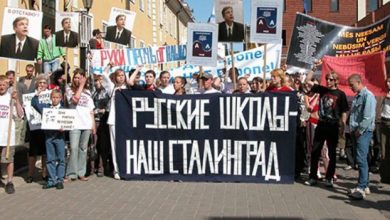Abroad for a while / forever
The situation with the outflow of young specialists abroad has not yet become critical. However, according to forecasts, if we do not start work in this direction now, in the near future our society will face serious problems.
“Certain labor migration exists in any society, even the most closed,” says Dmitry Burnashev, director of the department for beginner entrepreneurship at the Enterprise Development Entity (EAS). – And it is quite logical that among young people as the most mobile part of society, this percentage is slightly higher than in other social groups. Is this a problem? The fact that young people travel around the world, work in different countries, in my opinion, is not a problem. I know quite a lot of people who at one point or another in their lives lived and worked abroad, and now they are working here. Often they are distinguished by a broad outlook, independence and courage of ideas. The problem in this case may be the non-return of people going abroad. In order to reduce the percentage of people who have left permanently to a reasonable minimum, it is necessary to provide them with opportunities for development and self-realization here in Estonia.
No opportunities yet
According to the head of the Central Union of Employers of Estonia Tarmo Krijs, the situation with the outflow of youth abroad is not critical today. However, he says that in the near future Estonia may face problems if it does not begin to actively work in this direction, especially in the field of youth education.
Recently, according to employees of the Estonian Labor Market Department, the number of requests for consultations regarding permanent or temporary work abroad has not changed much.
“Of course, interest has grown,” says Marta Trucks, leading specialist of the Eures job placement program at the Estonian Labor Market Department, “but it cannot be said that the number of requests to us has changed dramatically. Of course, people come to learn more not only about opportunities in the local labor market, but also about what vacancies are in Europe. However, there is no mass leap. ”
According to her, if you take the whole country, then half of the Estonians seeking advice would like to find work in Finland, Sweden or Norway. Young people look more at English-speaking countries, because there are more opportunities. But in reality, there are not so many free jobs now in Ireland and England, and finding something acceptable is not easy. Moreover, it is much easier now for qualified specialists to get a job in Europe. For people without work experience and qualifications, there are far fewer opportunities. Here experts and leave. And well, if for a while.
The Labor Market Department does not conduct any statistics on the number of people leaving for work abroad. “For the simple reason that those who leave are not required to inform us of this. Our function is to provide people with all the necessary information about where these vacancies can be found, how to apply for them, how to write a CV, what legislation in the country, whether a work permit is required or not, all about taxes and social guarantees. And whether a person decides to go somewhere or not is his own business. “
Work abroad interferes with personal life …
“I went to Norway twice through an Estonian company,” says builder Sergey, “the first time for two months, the second time for one and a half.” They repaired kindergartens in Oslo, made additions to them. On hands I received, in terms of crowns, about 40 thousand. They paid normally, without fraud. We lived in a hotel, two people in a room, took food with us from Estonia, loaded, I remember, a whole car. Personally, it was hard for me without a family. Therefore, I do not really strive to continue such experiments. And it’s completely normal for those who are lonely, so they go for a long time, if not forever.
… and replenishes the wallet
In Estonia, Sergei earns exactly half as much. However, according to him, if you strain yourself, it is quite possible to reduce the difference by a few thousand more.
According to employees of the Labor Market Department, the linguistic affiliation of those seeking advice varies greatly in different regions of Estonia. In Ida-Virumaa, Martha Trucks says, of course, more Russians are turning.
One of the main reasons for the departure of Russian-speaking youth is a poor knowledge of the Estonian language. In second place is the opportunity to earn more money.
Another example is a resident of Estonia who did not want to introduce herself, who had been working as a bar administrator for British ships for several years. The average salary is about 2600 euros. Moreover, no one requires her to know the Estonian language, and the salary offered in Estonia is simply ridiculous compared to the current one. Not going to return yet.
How to hold and is it worth it?
Harri Taliga, Chairman of the Central Union of Estonian Trade Unions, believes that in a short time there will be no significant improvement:
The problem is that the young leave, and leave forever. When older people who have families in Estonia go abroad, they usually return. Unlike people who are not burdened by family. The number of employees decreases, this affects the economy, additional problems arise in the demographic sphere, which is not so hot anyway. All this negatively affects the development of society as a whole.
I am afraid that in the legislative plan it is difficult to achieve something here. It is necessary to create a general positive atmosphere in Estonia – working conditions, living conditions, so that they are attractive to young people. So that they do not think that abroad they will be able to quickly achieve the standard of living that they consider normal and acceptable for themselves.
In a short period of time, we cannot achieve significant improvement. But the government as a whole, and employers, and educational institutions should think about how to promote this. One of the first measures, of course, should be to improve working conditions, primarily wages. Our career prospects are relatively good compared to other countries, but in the current economic situation they are fading into the background.
How to keep young people from going abroad?
Lina, 57 years old
I think you should not hold. Young people must choose what and where they like. That is her right. And we need to create conditions for normal work. Which – I don’t know. This is a specialist to decide.
Irina, 42 years old
“Anyway, no one will keep her here.” My daughter is leaving now. And sons too. No one left here. It’s just that, unfortunately, Estonia is completely unattractive to young people.
Alexander, 59 years old
“She doesn’t need to interfere.” The son is studying in Berlin technically and, of course, will remain there. The daughter is also in Germany, has been working for three years.
Lyudmila, 54 years old
No way. She must learn the world, use all available opportunities. The outflow of specialists is, of course, bad, but the authorities themselves are to blame.
Seyda, 60 years old
“She has no prospect here.” And there is no way to keep her. My sons would also like to leave if they had such an opportunity.
How Estonian milkmaids earn their pension in Sweden
Merle and Weike from the Türi parish work on a Swedish ecological farm near Uppsala literally with a sweat of their faces, writes Õhtuleht. But they know exactly what they are doing it for. In old age, they will receive not only a meager Estonian pension, but also decent money from Sweden. For three weeks Merle works, and Vike is at home, then they change. 150 cows are waiting for them in the stable. The working day is long and tiring. Merle has been with the Swedish farm for six years, and Weike for four years.
Merle does not hide that he works in Sweden for money. Weike also says that he travels to Sweden because he wants to get more money so that not every count is counted.
Merle and Weike officially work in Sweden, they pay income tax there – 25% of earnings. The owner of the farm Elizabeth is responsible for this.
During the time worked in Sweden, Merle and Vaike will receive a pension from the kingdom even if they live in Estonia in old age. “I earn my pension in Sweden,” Merle honestly admits. Vike agrees with her.
Merle imagines life in retirement as follows: “I will live much better than those who worked in Estonia. I can be a real grandmother to my grandchildren, I can offer them more. ”
Merle and Vaike do not know the size of their future Swedish pension, but they are certainly several average Estonian pensions.
It is difficult to calculate the average Swedish pension, as it consists of three levels: a guaranteed pension, an income-related pension, and an additional pension.
Each year, the state calculates and sends notifications to Vike and Merle about how much money they have already accumulated, as well as a forecast for the future if they work up to 65 years. Sweden will transfer your pension immediately to a bank account. In Sweden, retire at the age of 65.
According to the Ministry of Social Affairs, about 3,500 residents of Estonia are already receiving a pension from abroad. The same number of pensioners receive a pension from Estonia, living abroad.
There are more and more recipients from abroad in Estonia. In 2005 there were 502 such, in 2006 – already 901, and last year – 1853. Most of the “foreign” pensions come from Finland.
The pension paid in Scandinavia is much higher than the Estonian one. In the second quarter of this year, according to the Statistics Department, the average Estonian old-age pension was 4555 kroons, and in Finland last year – 18 000 kroons.
True, the pension amount alone does not mean anything, because in many countries a pensioner pays more taxes than in Estonia, and life abroad is much more expensive. Some pensioners from rich countries go to live in a cheaper country, but this is not very common.
Merle and Weike are planning to retire in Estonia with their families. While they, however, do not intend to stop working in Sweden. Because the longer they work there, the more they will have money for retirement.
This post is also available in:
 English
English  Русский (Russian)
Русский (Russian)






